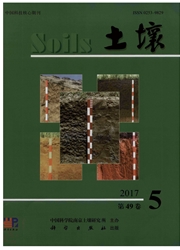

 中文摘要:
中文摘要:
通过盆栽和培养试验研究了不同水分历史水稻土CH4产生、氧化及排放间的相互影响。水稻土CH4产生、氧化和排放皆受土壤水分历史条件的强烈影响,非水稻生长期土壤水分含量越高,随后水稻生长期CH4排放量越大,产生和氧化能力也越强。无论是水稻生长期平均值还是季节变化,CH4排放皆受CH4产生的显著影响。CH4产生量和排放量的相对差值很好地说明了各处理间土壤CH4氧化潜力的差异。水稻土CH4排放通量主要受CH4产生率,而不是CH4氧化潜力的影响,但CH4氧化能牵制CH4产生率对CH4排放通量的影响,水稻土这种自然调节CH4排放量的特性对减少稻田CH4排放具有重要的意义。
 英文摘要:
英文摘要:
Interactions among CH4 production, oxidation and emission in paddy soils with different moisture history was studied by pot and incubation experiments. Emission, production and oxidation of CH4 in paddy soils were all strongly affected by soil moisture history. The wetter the soil in non-rice-growing season, the higher CH4 flux and also the stronger CH4 production and oxidation capacities in rice-growing season. Significant correlation existed not only between mean CH4 flux and mean CH4, production capacity, but also between their seasonal variations in rice-growing season. The relative difference of CH4 production and emission explained very well the CH4 oxidation potential of different treatments. It was CH4 production, not CH4 oxidation capacity, that mainly affected CH4 emission in rice-growing season, but CH4 oxidation buffered obviously CH4 emission as CH4, production increased. The ability of paddy soil itself to adjust its CH4 oxidation capacity would be important to mitigate CH4 emissions from rice fields.
 同期刊论文项目
同期刊论文项目
 同项目期刊论文
同项目期刊论文
 期刊信息
期刊信息
